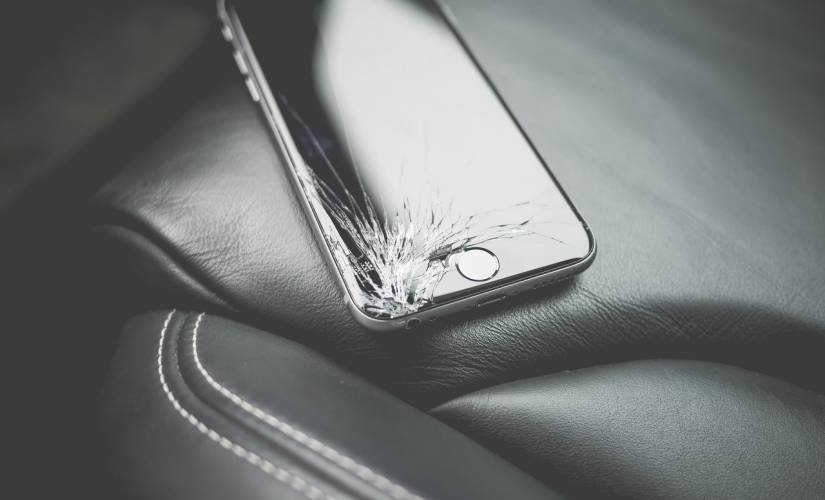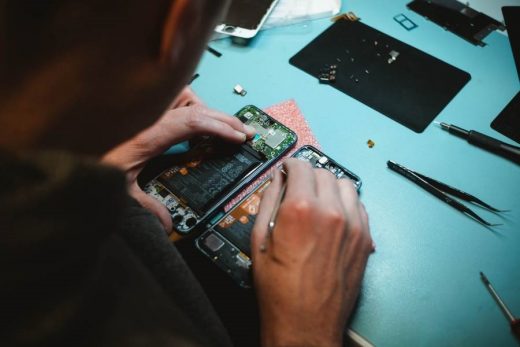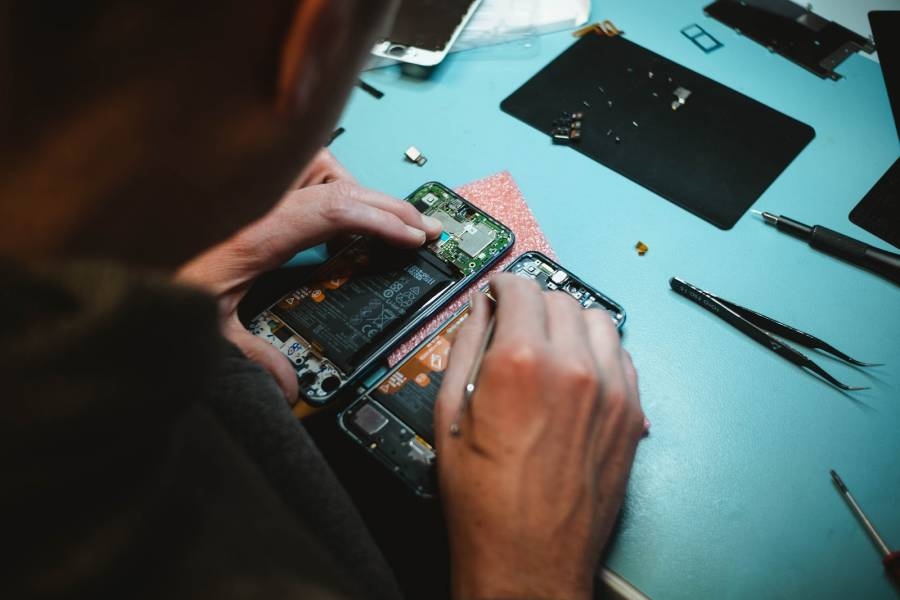Repair VS. Recycle: Key Factors to Consider
Repair VS. Recycle: Key Factors to Consider

As the pandemic has left many consumers with less disposable income and more time on their hands, interest in refurbishing or repairing electronics has gained new momentum.
When presented with their options, however, many consumers aren’t sure what action to take moving forward. Should you repair or recycle your broken electronics? Carefully considering each approach can make it easier for you to move forward confidently.
Reasons to Repair
Whether it’s been broken for years or you just dropped it today, there are several reasons you may want to repair your device:
Access Data
For many, the data is more important than the device itself. Losing personal photos, work data or school documents can cause heartbreak and stress.
Despite this risk, many still do not use cloud-based backup services such as Google Drive, Dropbox or iCloud.
Luckily, the most common damage to electronics (cracked screens, broken charging ports, and liquid damage) usually does not affect the memory of the device, meaning a repair will give you access to the data again.
Some repair shops even offer data recovery services, often saving you money and giving you access to your data without having to fully repair the device.
Financed Device
How we purchase and use cell phones and technology has changed significantly over the years. What used to be a once every two-year purchase of a few hundred dollars can now easily exceed $ 1000.
Furthermore, these purchases are often made on payment plans, stretching out years. Even if you break the device, you’ll have to keep making those monthly payments, and in most cases, purchasing a new device will simply add additional payments to your plan.
Many people find that it’s worth making repairs to their device to avoid making additional payments for a device that isn’t yet paid off.
Familiarity
Upgrading is exciting but can often be a lot of work and have unexpected costs.
When you choose to simply repair your existing device, you can continue to use the same accessories you’ve already purchased, including the charger, the case, and any other accessories you’ve added to it.
Choosing to replace your device, on the other hand, doesn’t just mean that you’ll face the cost of a new device, but that you’ll find yourself paying for new accessories and possibly having to replace every charger in your home, car and office.
Environmental Impact
Repairing electronics and keeping them around for as long as possible is the first line of defense to preventing e-waste and reducing your environmental impact.
In fact, 85% of the emissions impact of a smartphone comes from its production.
Opting to repair your smartphone means it holds on to all the energy and materials it uses during manufacturing and helps prevent e-waste from ending up in landfills.
Spend Local
Many electronic repair shops are locally owned and operated, whereas most electronic manufacturers and retailers are big businesses often with overseas production.
Making repairs to your existing device allows you to support those members of the local community, which is particularly important during times of economic uncertainty.
A lot of these repair shops have adapted to the COVID-19 pandemic by offering curbside service, mail-in repairs and home pick up and drop off.
Reasons to Recycle
Sometimes, as a consumer, you might want to choose not to try to repair your device. Recycling can also present a great option.
Frequently, the device can still be repaired and sold or donated. In other cases, recycling your devices can help cut down on overall waste.
Are you ready to upgrade to a new device, rather than holding on to the old one? Consider these reasons to recycle:
New Technology
Every year, new advances in cell phone and electronics technology become available.
Upgrading could mean a higher resolution camera, improved battery life, or access to faster data speeds with 5G.
In some cases, if you’re working with an older device, you may find that certain apps are no longer supported on your current device. For example, many older Mac computers don’t have the compatibility to run essential applications such as the new Microsoft office.
Help Support those in Need
You can help someone less fortunate by recycling for charity. Many charities, including women’s shelters, will provide individuals in need with old devices.
These devices can allow people in need to contact friends and family members or gain access to the internet to help with job searches. And, yes, you can find help to wipe all information, or factory reset your devices for data protection.
Other cell phone recyclers also support nonprofit charities by using the proceeds from your recycled device. Choosing to recycle your device for charity can offer enormous benefits to those in need.
Cost
Many newer models of smartphones are incredibly difficult to repair, meaning it might not be worth the cost.
Apple’s screen repair costs jumped considerably with the arrival of the iPhone X and the use of OLED displays.
Currently, it costs between $ 279 and $ 399 to replace broken screens at most repair shops, including the Apple store.
The situation is the same with Samsung Galaxy smartphones – replacing a cracked screen on most newer models starts around $ 300.
Quality
Not all replacement cell phone parts are created equal. When repair shops buy replacement parts, such as screens, there are numerous qualities or grades to choose from.
Furthermore, there is no universal standard for part quality, meaning that one repair shop’s ‘A Grade’ may be comparable to another shop’s ‘A++ Grade’.
Many of these parts will work the same or similar to the original but quality may differ. It’s important to know what you’re paying for ahead of time.
Device Downtime
Repairs can lead to considerable downtime. Many people rely on their devices to stay connected, and in the midst of COVID-19 quarantines.
Our connectivity is more important than ever.
You may need your device to access schoolwork, stay on top of work, or check-in with friends and family members that you can’t see in person.
Between ordering parts and often time-consuming repairs, it can take several days to get a working device back in your hands. Let’s be honest, many people cannot afford that much time without their device.
You must also consider the opportunity cost as the cost of the repairs themselves: for example, if not having your phone prevents you from working, you may face several days’ lost income while you wait for repairs.
Risk Further Damage
DIY repairs risk causing further damage. Sure, there’s a YouTube video out there that can allow you to see firsthand how to take on almost any repair job, but that doesn’t mean it’s a good idea.
Many repairs require specialized tools, for example, newer iPhone models require the replacement screen to be “programmed” to function properly. Others need a steady hand in order to reduce the risk of further errors.
Simply opening the phone on your own can also void your manufacturer’s warranty, which means that the manufacturer won’t take on any responsibility for future repairs and defects.
The decision to repair or recycle always rests with you, and it may be different depending on your immediate circumstances.
Is it better to repair or recycle your device? Carefully consider all these criteria before making a decision, or talk to your local repair shop or recycler to learn more about your options.
Image Credit: picjumbo; Pexels
The post Repair VS. Recycle: Key Factors to Consider appeared first on ReadWrite.
(31)



